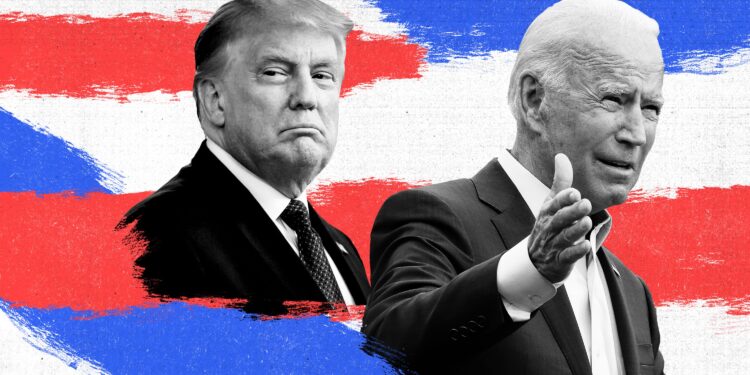Joe Biden and Donald Trump have agreed to square off in a presidential debate this June, following a heated exchange of challenges and responses. CNN announced it will host the first debate on June 27 in Atlanta, Georgia, with Biden suggesting a second debate in September, which Trump promptly accepted.
Biden, 81, laid down his terms for the debates, including speaker time limits and the absence of a live audience, conditions to which CNN agreed. In a departure from tradition, Biden bypassed the debate commission’s proposed schedule, aiming to exert control over the format.
Trump, 77, accepted the proposed dates but proposed a larger venue for more excitement, accusing Biden of shying away from crowds. Biden, in a video message, taunted Trump about his ongoing hush money trial, daring him to pick the dates, adding a jibe about Trump’s availability on Wednesdays.
CNN clarified that the debate would take place at its Atlanta studios, with no audience present to allow maximum time for the candidates. The Biden camp’s decision to engage in debates seemed a calculated risk to reinsert Trump into the national discourse, potentially reversing his polling advantage in battleground states.
Trump, who has previously expressed readiness to debate Biden anytime, anywhere, responded enthusiastically to Biden’s challenge, proposing more than two debates and a larger venue for excitement.
The Biden campaign, however, indicated they would not participate in the commission’s scheduled debates in September and October, opting for debates hosted by news organizations like CNN. They criticized the current debate structure as out of touch and advocated for a format with only the candidates and a moderator, no audience disruptions, and strict adherence to speaking time limits.
Moreover, the Biden camp criticized the commission for missing early voters with their later debate schedule and ruled out the participation of third-party candidates. They accused the commission of failing to schedule debates meaningful to all voters, signaling a departure from the traditional debate framework.
























